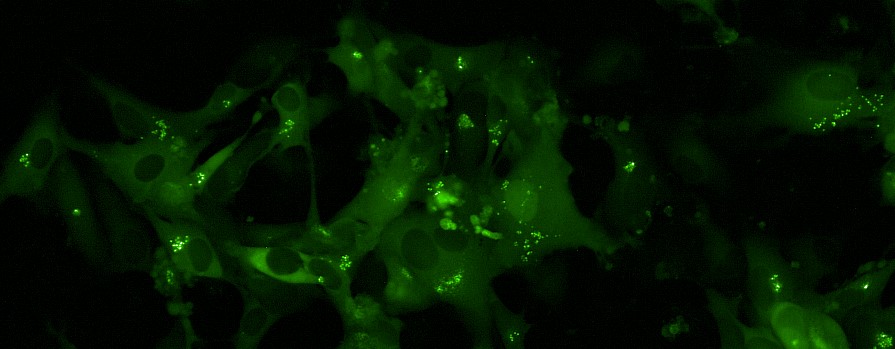
Mechanisms of infection by oncolytic viruses and new approaches to immunotherapy
Louis Buscail, Pierre Cordelier
Our research work aims to characterise the mechanisms involved in the resistance of cancer cells to oncolytic viruses, and to study the impact of these viruses on the tumour ecosystem. Oncolytic viruses are gene holoparasites that infect, replicate, kill and spread in tumours, opening new therapeutic avenue for the treatment of PDAC. Our first objective is to identify the molecular and cellular determinants that govern the specificity and the efficacy of oncolytic viruses gene therapy in pancreatic tumours. Hence, we investigate the mechanism by which oncolytic viruses induce an anti-tumour immune response, in order to sensitise pancreatic tumours to immunotherapies. These data will be used to define novel model for in silico simulation of oncolytic viruses infection of PDAC cells to devise therapeutic scenario with improved efficacy, in collaboration with computer scientists from the Institute of Research in computer science of Toulouse (IRIT). This approach will help select patients that are most likely to respond to this innovative therapy and to propose even more effective therapeutic combinations. These projects are carried out using experimental models, most of which are derived from patients, and state-of-the-art technologies to ensure real-time monitoring of biological events, down to the single cell level.
Illustration :


